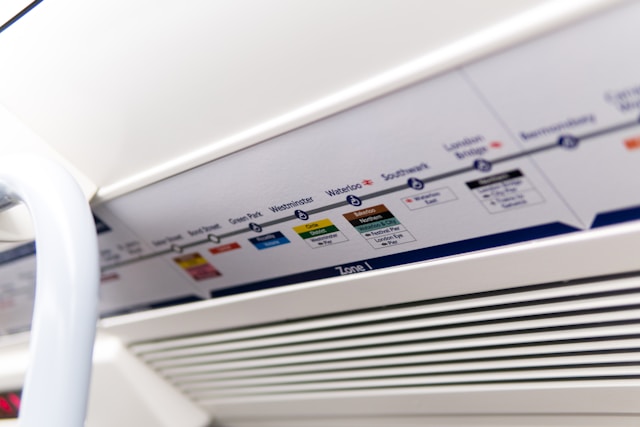Key Takeaways:
- Historical advancements and the increased accessibility of air conditioning technology.
- The convergence of air conditioning with innovative technology and its environmental implications.
- Economic and cultural influences of climate control on global societies.
- Insights into future technological innovations and the importance of sustainability in air conditioning.
The Birth of Air Conditioning
At the outset, air conditioning was a novel concept designed to combat humidity in industrial environments. Its development marked a pivotal moment in climate control, setting the stage for a comfort revolution in workplaces and homes. When we consider the early, cumbersome, and inefficient systems to the highly advanced solutions of today, such as those provided by specialists in the field, the trajectory of air conditioning technology is nothing short of remarkable. Once a status symbol for wealth and luxury, air conditioning is essential in many aspects of life, enhancing comfort, productivity, and health.
The proliferation of air conditioning across homes and businesses demonstrates a leap in convenience and showcases the ingenuity of human innovation. It changed how societies operate, allowing for controlled and comfortable working environments and noticeable productivity increases, especially in regions with extreme temperatures.
Technology and Innovation in Modern Air Conditioning
Technology and air conditioning convergence has inaugurated a fresh chapter in climate control solutions. Contemporary air conditioners have various capabilities, including energy-efficient performance and compatibility with smart home setups. Innovations in heat pump technology and the emergence of inverter-based systems have transformed this domain, enhancing indoor climate management while reducing energy usage. This progress in air conditioning technology also influences air conditioner installation.
The intelligent AC space is exciting—an innovation that embraces the Internet of Things (IoT) concept to bring a new level of customization and efficiency. Because these systems may be operated remotely via cell phones, unexpected weather fluctuations are less problematic. Implementing smart thermostats and intelligent control systems in air conditioners offers user convenience and promises cost savings and an extended lifespan for the equipment. One can read about integrating AC units with IoT to understand better how these technologies intertwine to harness efficiency and comfort.
The Environmental Impact of Air Conditioning
The environmental discussion surrounding air conditioners has gained momentum, especially about climate change. The crux of the issue lies in the significant contributions of traditional ACs to energy consumption and the resulting carbon emissions. Yet, at the forefront of ecological progress are new generations of air conditioners that are more energy-efficient and utilize environmentally friendly refrigerants. Developers are focusing on reducing the global warming potential of these systems and shifting standards to align with sustainability goals.
Health and Air Conditioning: The Connection
Beyond providing a respite from the heat, air conditioning systems significantly affect indoor air quality and health. By managing temperature and humidity levels, air conditioners create environments that reduce the prevalence of mites, mold, and other allergens. The importance of this function cannot be overstated for populations susceptible to respiratory illnesses and allergies. Advanced filtration systems, now commonly integrated into air conditioning units, play a pivotal role in trapping particles and pollutants that could otherwise circulate within indoor spaces.
Air Conditioning in Commercial Settings
Commercial spaces frequently challenge the operational limits of air conditioning systems, particularly those hosting sensitive equipment like servers and electronics. Reliable and consistent climate control is of the essence in these scenarios, not just for the well-being of employees but also for preserving technology sensitive to temperature fluctuations. Companies rely on sophisticated cooling systems that can withstand the rigors of round-the-clock operations, so choosing an air conditioning system is a critical business decision.
The Cost of Cool: Economic Considerations of AC Usage
The benefits of air conditioning come with attached economic considerations, including installation cost, energy consumption, and ongoing maintenance. Consumer behavior around AC usage has slowly shifted towards energy-efficient models that promise lower utility bills without sacrificing performance. For instance, air conditioning systems with ENERGY STAR ratings are designed to consume less power during operation, an aspect savvy consumers increasingly prioritize. Sustainable practices like routine maintenance and programmable thermostats magnify these savings, balancing eco-friendliness and economical operation.
Global Air Conditioning Market Trends and Predictions
The global landscape of the air conditioning market is diverse and growing, pushed by higher temperatures and more robust economic conditions in developing regions. Manufacturers and consumers are becoming more ecologically conscious, affecting purchasing decisions and the types of air conditioning units brought to market. Technological improvements are also anticipated to refine the performance of these systems, making them more consistent with contemporary energy standards. Insights into the market size, growth projections, and consumer trends can be gleaned from a detailed examination of global air conditioning market trends and forecasts, illustrating a vibrant and ripe sector with opportunities for innovation.
Culture and Comfort: How Air Conditioning Shapes Living Spaces
The widespread availability of air conditioning has undeniably affected cultural practices and preferences, which are observable in housing designs and the built environment. The indoor comfort expectations have altered how homes and offices are constructed, with climate control considerations at their core. This is particularly apparent in regions that experience extreme temperatures, where air conditioning is not merely a convenience but an integral component of livability and design.
Emergency Preparedness and Air Conditioning
Air conditioning is critical in public safety and emergency preparedness in the face of rising temperatures and heat waves. Ensuring access to cooling centers and maintaining the functionality of air conditioning systems during power outages is crucial, particularly for older people and other vulnerable groups. Urban planning and infrastructure need to account for cooling needs, with strategies in place to handle disruptions and safeguard the continuous operation of these essential systems.
The Future of Air Conditioning: Looking Ahead
Looking into the future, the air conditioning sector continues to be driven by customer demands for more sophisticated, eco-conscious products. Emerging trends suggest a blend of artificial intelligence, renewable energy, and fluid dynamics to craft more effective systems that align with the ethos of sustainability. Research in alternative cooling methods and materials that reduce reliance on traditional refrigerants is underway. Firms are increasingly directed toward synthesizing technological progress and ecological stewardship.







